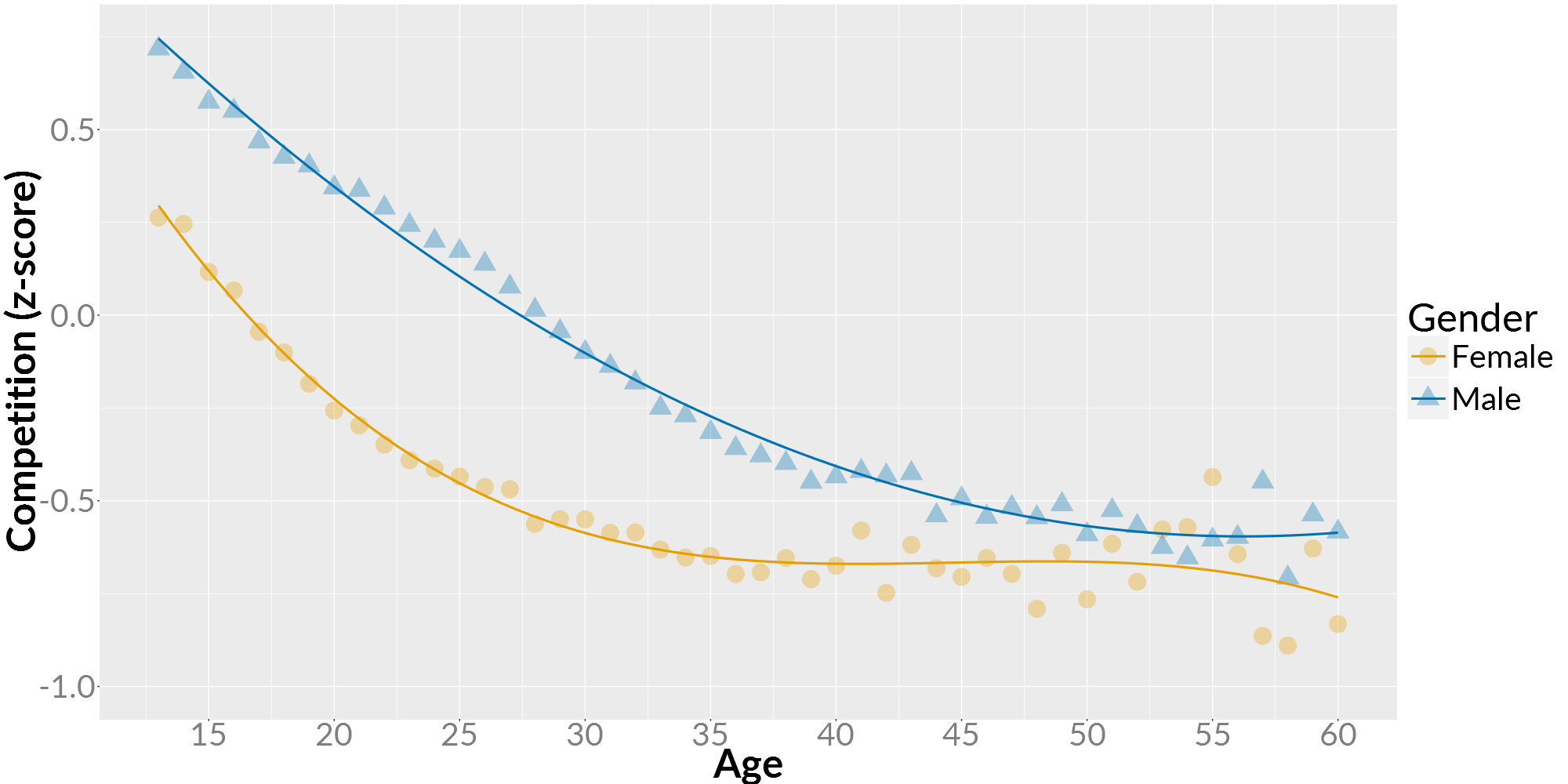
"Game analytics consulting practice" Quantic Foundry has released the results of a survey the company conducted with over 239,000 people that play games. That's an oddly specific number, but it's revealed some interesting, if not hugely surprising results related to competitiveness in games. Basically, their data shows that competitiveness—as in, interest in playing competitive multiplayer modes in games—declines most with age, rather than gender, with the sharpest drop between the ages of 13 and 35.
There are some variations between male and female players. Women appear to lose interest in competitive games much earlier than men—about 15 years earlier—but the overall curve of disinterest is largely consistent regardless of gender.
The biggest gender gap occurs at age 22, which is when female interest in competitive games drops slightly more sharply than with men. However, the biggest factor in competitiveness—according to this survey at least—is age.

As you can see, things level out in later life, and by 50 years old the level of competitiveness is largely the same for both male and female players, albeit drastically reduced compared to the young'uns on the left of the graph.
You can read the full results of the survey here, and read more about Quantic Foundry's data collection process here.
(Via Tom Francis. Cheers, Tom Francis.)
Keep up to date with the most important stories and the best deals, as picked by the PC Gamer team.
Tom loves exploring in games, whether it’s going the wrong way in a platformer or burgling an apartment in Deus Ex. His favourite game worlds—Stalker, Dark Souls, Thief—have an atmosphere you could wallop with a blackjack. He enjoys horror, adventure, puzzle games and RPGs, and played the Japanese version of Final Fantasy VIII with a translated script he printed off from the internet. Tom has been writing about free games for PC Gamer since 2012. If he were packing for a desert island, he’d take his giant Columbo boxset and a laptop stuffed with PuzzleScript games.


